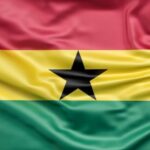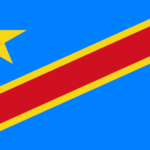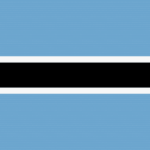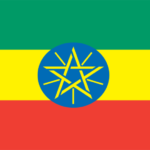BEOKU-BETTS, E.S.
Ernest Samuel Beoku-Betts (March 15,1895-september 23,1957) was one of the most outstanding Krio (Creole) liberals of his time. As one of the first three Africans to be elected to the Legislative Council of Sierra Leone in 1924, he served as the urban member until 1927, when he became its vice-president. He was the first Sierra Leonean to attain this post. Both he and H.C. Bankole-Bright (q.v.)- the ‘double Bs” they were often called -dominated the politics of the Legislative Council in the 1920s and 1930s.They were gadflies to the colonial administration.
Born in Freetown, Ernest was one of the five children of C.W. Betts, an enterprising and successful Krio hardware merchant. Betts was noted for selling almost anything in the trade from ‘pin to anchor’, as someone fondly commented. As sole agent for the celebrated singer sewing machine company, and as the owner of five hardware stores in Freetown, Ernest’s father wielded considerable influence within the local community.
Beoku-Betis was educated at the Leopold Educational Institute (a secondary school), and later graduated with a B.A. (Bachelor of Arts) from Fourah Bay college, Freetown. In 1914 he went England to study Law. He obtained his B.C.L. (Bachelor of Civil Law) and M.A. (Master of Arts) degrees from Durham in 1915, and his L.L.B (Bachelor of Law), with honors, from London, and was called to the Bar at the Middle Temple in London in 1917.
On his return home, he went into private practice for a few months with H.J.L. Boston(q.v.). a well-known Freetown Barrister. He then began his own practice, which flourished as there were then few competent African lawyers.
He was inspired by nationalist sentiments and, after his return home, altered his family name – which had previously been simply ‘Betts’ – by prefixing it with ‘Beoku’ an abbreviation of the name of the town of Abeokuta, in Nigeria, where his father’s family had originated.
Outspoken and intelligent, he took to politics. In 1919, he became a member of the Freetown City Council, on which the African Intelligentsia suffered much discrimination at the hands of the colonial establishment.
Qualified African barristers were not employed in the judiciary, while no African was to be senior to a European, however qualified or experienced he might be. Lebanese traders were also being given preferential treatment at the expense of the well-established Krio merchants, who consequently suffered irreparable economic loss. Moreover, until 1924 Africans were not allowed elected representation in the colony’s Legislative Council.
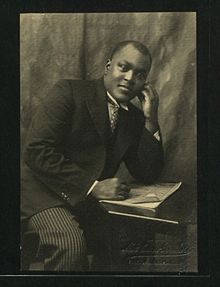
Such disabilities forced people like Beoku-Betts to become actively involved not in local politics but also in the activities of the National Congress of British West Africans (N.C.B.W.A), the Pan-West African Movement that was founded in Accra, in what was then the Gold Coast, in 1920. The 1924 constitution, which increased the unofficial membership of the legislature council to 10, made provision for only 3 members to be elected to represent colony interests. Beoku-Betts was among the first who was selected.
He also served as Mayor of Freetown from 1925-26. Although his western education and social background had conditioned him not to be totally opposed to the colonial presence in Africa, yet he often criticized and condemned the inequitable way in which Africans, particularly those with a western education, were being treated by the colonial establishment. Both he and Bankle-Bright, as well as other west Africans of similar social standing, demanded justice and fair play for Africans and the “two Bs” worked almost as partners in the Legislative council. Most of the issues raised by Beoku-Betts were wide ranging and often controversial. He often focused on critical questions which sought not only to end discrimination against Africans in the colonial service in general. He constantly embarrassed the colonial establishment by asking questions concerning vacancies in the colonial service which could adequately be filled by qualified Africans.
He was particularly interested in the protection of the rights and the official dispatch of Governor Sir Ransford Slater (term of office 1922-27) to the secretary of state for the colonies. He also strongly criticized the increasing presence in Sierra Leone of Lebanese traders, who were prospering at the expense of the local business community.
In the legislative council he supported motions which sought to protect the underdog, particularly chiefs, who were often made to look undignified in the eyes of their subjects. He even sought the welfare of prisoners.
In 1937, he was invited to represent Sierra Leone at the coronation of King George VI of the United Kingdom, in that same year he resigned from active participation in politics to become the first Sierra Leonean police magistrate. This caused some dissension between him and his political ally, Bankole- Bright, but in spite of this, and also in spite of the fact that he stood to lose financially, for his legal practice was then flourishing, he accepted the appointment. This was because he felt it his personal duty to prove that an African was just as capable as any European of holding such a responsible position. Indeed, soon after his appointment other Sierra Leoneans began to be appointed to the bench.
In 1945, he became a puisne judge, and in the following year, a judge of the West African Court of Appeal. He again came to the fore by playing a crucial role in the settlement of the traumatic general strike, and the accompanying disturbances, which occurred in 1955.
Privately and publicly, he brought together the disaffected workers led by Marcus Grant on the one hand, and members of the government under the chief Minister Sir Milton Margai, (q.v), with Siaka Stevens as his Minister of Labour, on the other. It was through his tireless endeavors that a compromise was affected, and the accompanying disturbances, and the disputes finally settled.
Apart from his political activities, Beoku-Betts was Keen all – rounder in sports, playing cricket, soccer, tennis. For many years till death he served as president of the Sierra Leone Football and critical Associations.
For His distinguished service he was awarded a Knighthood by Queen Elizabeth II in 1957, becoming the second Sierra Leonean to be so honored. He died later that year in Freetown.
JOSEPHINE A. BEOKU-BETTS
